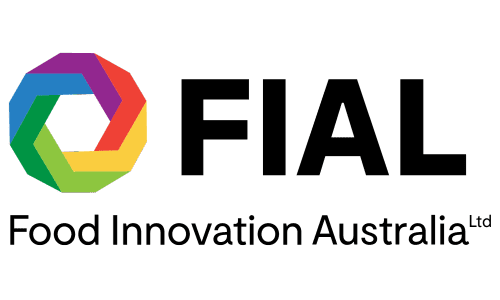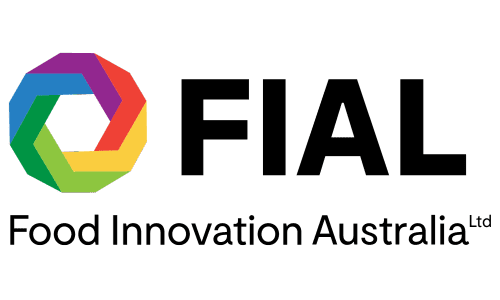Driving growth and collaboration through regional clusters
Clusters are a key delivery mechanism for igniting innovative ideas and building the capabilities of the food and agribusiness sector to unlock innovation. FIAL has invested seed funding into clusters in key regions.

“Clusters enable increased collaboration between businesses to enhance their ability to innovate and value-add beyond what would be possible if operating in isolation. This supercharges the competitiveness of Australia’s businesses, regions and economy.”
– Dr. Mirjana Prica, FIAL Managing Director
FIAL has been instrumental in the establishment of eight regional clusters
FIAL has driven the growth of Australian food and agribusiness clusters since 2018. FIAL’s Cluster Program was the first of its kind in Australia providing $3 million in funding, matched with an additional $3 million, allowing for the establishment of four clusters.
In 2021, FIAL launched another round of funding to support clusters via the Cluster Grant Program. Building on FIAL’s strong track record in establishing clusters, the program provides a total of $600,000 of funding to four clusters operating within the Food and Agribusiness sector. This support will help unite these clusters with government and researchers to take advantage of market opportunities here and overseas.
2018 cluster grant recipients

Central Coast Food Alliance
Located in Ourimbah, New South Wales. Funding was received to give the Central Coast region a clearer identity and to grow the current
food and beverage sector.

FermenTasmania
Located in Hobart, Tasmania.
Funding was received to transform the future
of the Australian Food and Agribusiness economy through
fermentation technologies.

Food & Agribusiness Network
A mature cluster located in Woombye, Queensland. Funding was received to deliver new programs and services to support its members in addressing shared challenges
and opportunities of the region.

Food & Fibre Gippsland
Located in Gippsland, Victoria. Funding was received to drive value adding, collaborative on-line trading platforms, and brand awareness of the region whilst protecting provenance through intelligent traceability technologies.
2021 cluster grant recipients
Tasmanian Agrifood Network
Tasmanian Agrifood Network, based in the regional city of Launceston, a region of eight local governments brimming with farms, vineyards, artisan, and commercial producers. Annual agriculture production of $700m is set to be turbo-charged through entrepreneurship and innovation. The Cluster will embrace the culture and creativity of the city, and deliver a vibrant program of events centred on the region’s food and culture.
Tropical North Queensland Regional Food Network
Tropical North Queensland Regional Food Network, in collaboration with RDA Tropical North, will focus on the region’s abundance of high-quality produce including a diverse horticultural industry, and world-recognised seafood and aquaculture. The region has historically been an innovative and entrepreneurial region attracting and developing diversification within industries including food technology, tropical food trail tourism and farm stay opportunities for domestic and international tourism. The region is looking to utilise agriculture and value adding as a priority sector for renewed growth post COVID-19 impacts.
Greater Whitsunday Alliance – Agtech Cluster
Greater Whitsunday Alliance - Agtech Cluster, part of a diverse region that includes mining and food production, manufacturing and supply chain systems for sugarcane, horticulture, aquaculture, livestock, pulse, and grains. The Cluster aims to foster the adoption of agritech and attract ‘new blood’ into the industry. They aim to develop a regional agtech strategy and develop specific training opportunities, and support, to gain a better understanding of agtech solutions for the region and broader supply chains.
Limestone Coast Food and Agribusiness Cluster
Based in South Australia's Limestone Coast, the Limestone Coast Food and Agribusiness Cluster is unique due to the variety of natural features which contribute to diversity in agricultural production including red meat, coarse grains, grape and wine, seafood, horticulture, dairy, and eggs. The Cluster will bring together both large and small food businesses in the region to collaborate on future growth opportunities.
Cluster reports

Evaluation of Australian Food & Agribusiness Clusters
Evaluation of Australian Food & Agribusiness Clusters
The inaugural FIAL Cluster Programme was launched in 2018 to support the development of clusters in food, beverage and agribusiness, and encourage greater investment in innovation through collaboration and knowledge sharing. This report summarises the findings and recommendations of the project .

European Cluster Visit
European Cluster Visit
Whilst in Europe in 2016, FIAL's Chairman and Managing Director took the opportunity to meet with different cluster leaders, academic experts and government policy makers to learn what principles should be followed to encourage the formation of successful clusters in Australia.

Canada’s Protein Supercluster
Canada’s Protein Supercluster
Australia and Canada are net exporters of food, with both countries turning to clustering as an intervention to address the impediments and opportunities for growth.
This report delves into Canada's aspirational goal to become the favourite protein supplier in the world by utilising clustering.

TCI Network Global Conference 2017
TCI Network Global Conference 2017
In November 2017, FIAL's Chairman and Managing Director travelled to Bogota, Colombia, for the TCI Network’s 20th Anniversary Global Conference.
This report looks into key learnings from the Conference and emerging global cluster trends.

